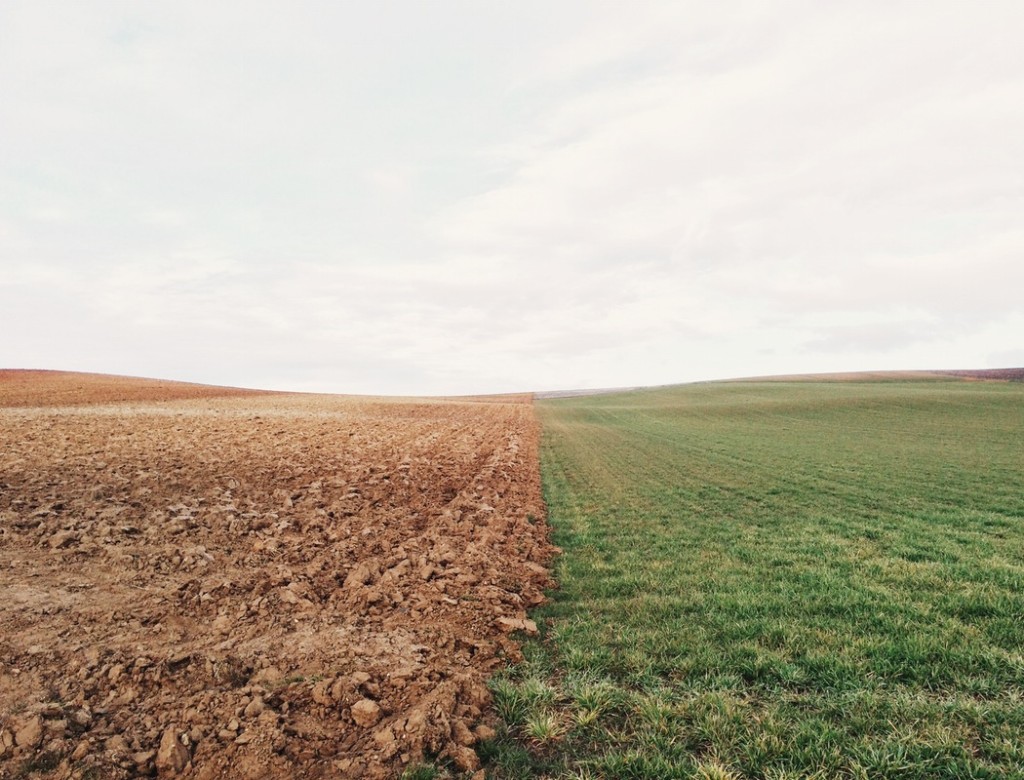
Photo by Elizabeth Lies
When they visited the house in January the yard was covered in snow. She walked around the back in her boots to find the garden — the bare, white patch of stillness between the trees. A blank canvas waiting in the cold sun. She stood in the middle, legs planted like winter shoots. Wondering what lay waiting in the fertile soil below.
In February they bought the house. Her very own piece of the earth. While her husband patched holes and painted rooms, she tended to her winter garden. Mending fences. Trimming evergreens. Picking a winter harvest of stray branches out of the snow.
By March she could at last see down to the earth — rich and flooded with the spring runoff. In the afternoons she’d walk out to the garden. Bend to it. Spread her palm open against the soft, cool soil. Felt the bits of rock against her skin. Worked dead leaves into the earth to give the garden new life.
Throughout April she raked and pulled and hoed. Patched up the stone borders to keep the dirt in. Mixed coffee grinds into the ground. She grew to love the dirt. The way she could smell it, dark and feral, through the open windows after it rained. The way it collected in lines under her fingernails and, if she bit them, the way it crunched between her teeth.
In May she tilled long rows across the soil. Planted seeds, bulbs. Cupped seedlings in her palms and placed them, gently, into the holes she’d dug into the dirt. Every morning she’d unfurl the hose and point a stream of water into the soil, turning it dark and moist. A promise of what was to come.
She watched as her new plants grew thick stalks. Swayed and bent with the wind. She held their tiny flowers in her palm — yellow zucchini blossoms, white pepper buds, the scarlet blooms of runner beans. Sometimes she would stand out in the rain, watching the garden fill and empty, fill and empty. Taking in what it needed. It made her stomach stir to see how such growth seemed so simple. How so much could come from so little.
In June she spotted the first white-green tips of strawberries, hard and bitter, hanging close to the ground — their colour deepening as the days grew longer. She’d sit with her knees in the dirt and pick the ripest ones, eat them warm and earthy. She could taste their rich, red flavour at the back of her throat. Glowed with the way they filled her up, sweet and satisfying.
By early July her garden had filled out even more. Long, green limbs of snap peas. Orange carrots pulled to life by the tufts of their leaves. Cucumbers dangling on the vine. Red peppers bright with heat. Scallions. Turnip. Broccoli heads so soft and small she could cradle them in her hands. Carried them like offerings into the house.
She would bend with a grunt to pull at the weeds that threatened her crops, wrapping their spiked leaves around her plants like tentacles. Choking the new growth with vines that hunted overnight.
In August the garden sprung fresh life. Tomatoes ripe and sun-warmed, bursting red juice down her arm as she plucked them from the vine. Leeks and celery and great bunches of Brussels sprouts. She dug into the dirt and plucked out red and white onions, breaking them open with her fingers to breathe in their first scent. She braced one hand in the dirt and, with the other, pulled hard on potato stalks. Watched in awe as the tiny, round heads emerged from the earth. Wiped each one carefully with her sleeve.
As the summer days shortened into September she unearthed parsnips and late garlic. Dug her hands into the soil to find the rows of sweet potatoes. Used a knife to snip free artichokes, piling them carefully into baskets. In the last days before fall she cleared out the old plants. Cut away dead branches and vines. She spent an afternoon picking through each row, cleaning out the old. When the sun began to set she stood up. Stretched her back. Felt the deep ache of a day’s work way down in her muscles.
The last of her harvest arrived in October. Tangy red radishes still covered in dirt. Mustard greens. Beets that bled when she cut them open, staining her gloves. And in the corner, a single pumpkin — small and smooth and plump, tethered fast to the vine. She pulled her garden shears from one pocket and cut it free. Bent down to the earth to pick up the last of what she’d planted. She tucked it under one arm and stood. Paused. Took in the last of it. The garden that had grounded her. The harvest that had delivered her heart’s desire.
She put a hand over her ripe belly and felt it tighten. Knew that it was time. Then she walked inside with the pumpkin still under her arm and pulled the porch door closed behind her.
 Tina Wayland is a freelance copywriter by day and an occasional writer of fiction by night. She holds a BA in Creative Writing from Concordia University, which she's finally dusted off and put to good use. She's had various bits and pieces published in Every Day Fiction, Halfway Down the Stairs and From the Depths, with something new slated for this spring's issue of The Foundling Review. Her best work yet is a 5-year-old who writes song lyrics in marvellously phonetic English.
Tina Wayland is a freelance copywriter by day and an occasional writer of fiction by night. She holds a BA in Creative Writing from Concordia University, which she's finally dusted off and put to good use. She's had various bits and pieces published in Every Day Fiction, Halfway Down the Stairs and From the Depths, with something new slated for this spring's issue of The Foundling Review. Her best work yet is a 5-year-old who writes song lyrics in marvellously phonetic English.